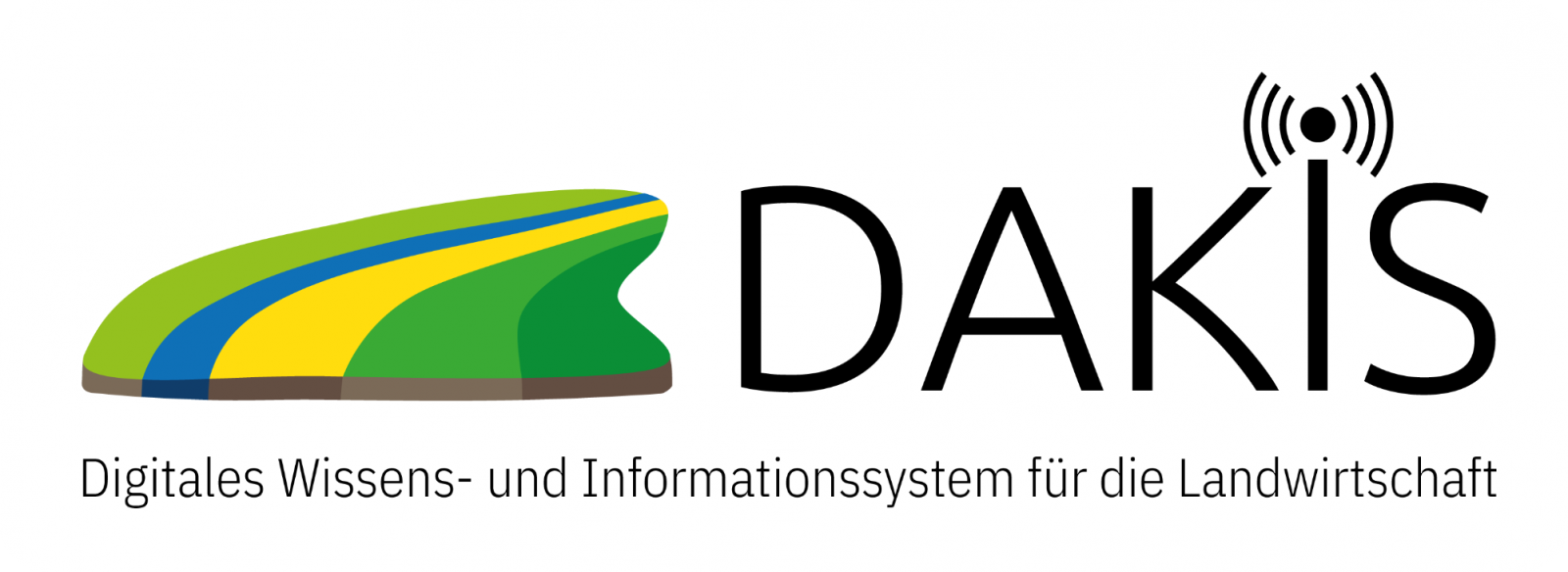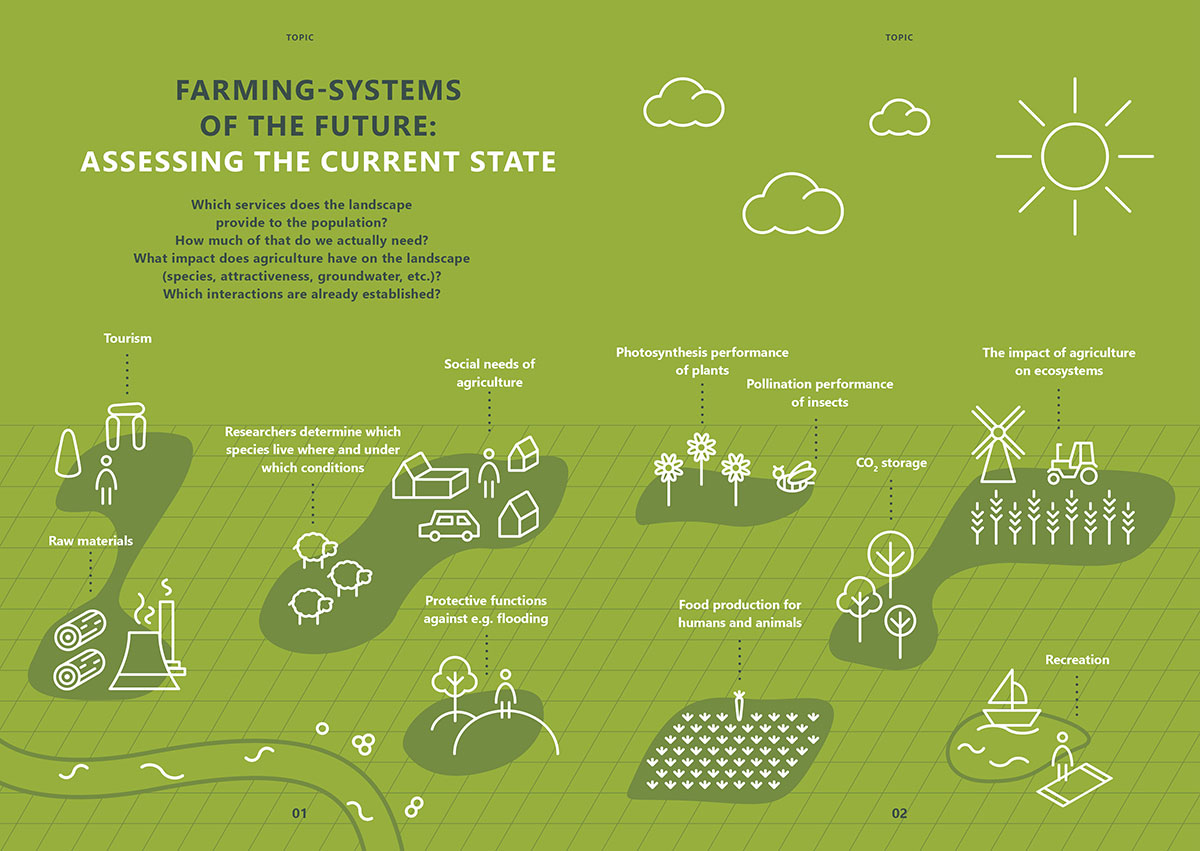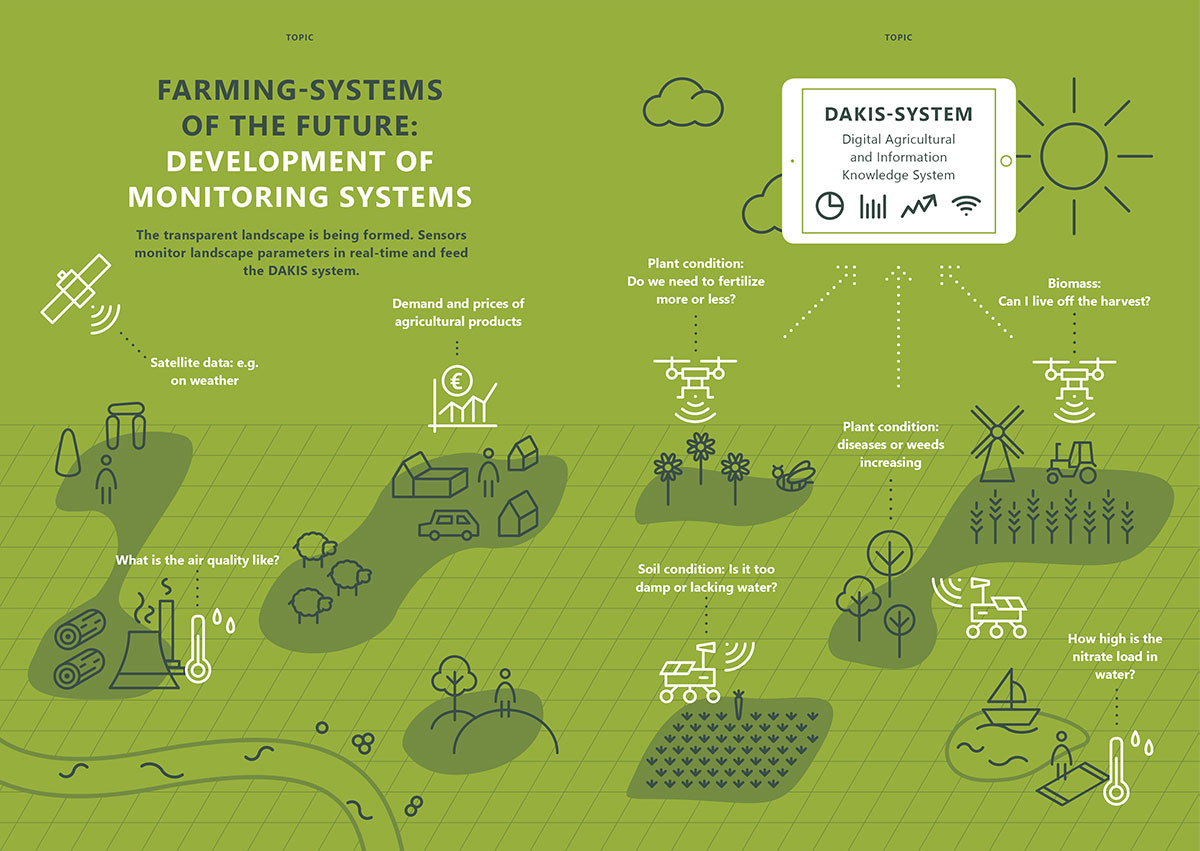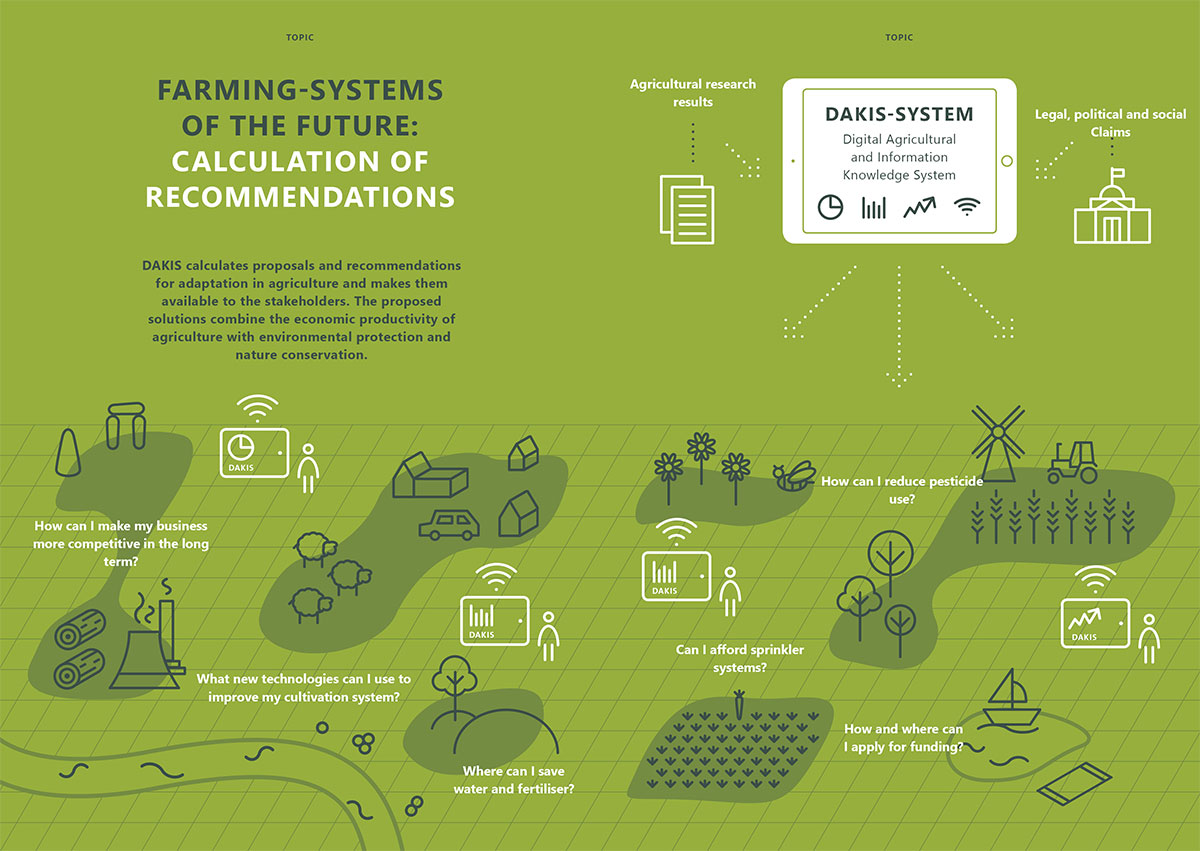Assigning a value to ecosystem services
Loss of biodiversity, shortage of resources, climate change and the increasing demand for foods are leading to worldwide goal conflicts in land cultivation. Harmonising the goal conflicts through the optimally balanced delivery of ecosystem services is a key challenge for the Agricultural Systems of the Future. The DAKIS project focuses on the optimised delivery of ecosystem services. A novel, digital decision support system along with the diversified cultivation of small sections of land are intended to make this possible.
Our vision: examine all aspects in a system
Our vision of future agrosystems is that production systems diversified in terms of both space and function are able to harmonise conflicting land use goals. Therefore, the project objective is the development of an integrated, digital agricultural knowledge and information system (DAKIS) that combines real-time data with simulations, social demands and economic factors to optimise the delivery of ecosystem services for society.
The goals of the DAKIS project are as follows:
-
Integration of ecosystem services, biodiversity and resource efficiency into the decision-making process of farmers.
-
Documentation, forecasting and control of subarea-specific effects of agricultural activities, for the first time in real time.
-
Optimisation of cropping systems for ecosystem services, biodiversity and resource efficiency.
-
Development of new orientation goals in operational planning and support for complex decisions.
-
Establishment of new communication channels for cooperation between farmers, consumers and society.
Highly modern technology for sustainable agrosystems
The DAKIS project utilises advancing digitalisation and field robotics to integrate ecosystem services and biodiversity into modern planning processes, production and marketing. The natural potential and social demands for ecosystem services and biodiversity are being analysed in two test regions (Brandenburg and Bavaria). Sensors and models are being developed to enable the capture and simulation of ecosystem services in real time. The results will be integrated into a software system. New cropping systems are being developed in parallel in research areas in Brandenburg, tailored to small-scale heterogeneity, ecosystem services and biodiversity. The DAKIS system and the resulting agricultural landscape are demonstrated on the basis of three integrated R&D projects (new sensor platforms, real-time models and cropping systems). All activities are accompanied by foresight studies, sustainability assessments and legal evaluations. Regional project advisory councils are being established in both test regions for the active co-development and further development of DAKIS. The result will be a prototype of the DAKIS system proposing courses of action for the two test regions.
Coordinator
Prof. Dr. Sonoko Bellingrath-Kimura
Leibniz Centre for Agricultural Landscape Research (ZALF)
Projektmanager
Karoline Hemminger
External project communication
Dr. Cheng Chen
Internal project communication
Contact
Leibniz Centre for Agricultural Landscape Research (ZALF)
Eberswalder-Str. 84
15374 Müncheberg
Tel.: +49 (0) 33432 82-383
E-Mail: karoline.hemminger@zalf.de
Project partner
Leibniz Centre for Agricultural Landscape Research (ZALF)
University of Bonn
Forschungszentrum Jülich
IHP - Innovations for High Performance Microelectronics
German Research Center for Artificial Intelligence
Osnabrück University of Applied Sciences (HNEE)
Leibniz Institute for Agricultural Engineering and Bioeconomy (ATB)
Fraunhofer Institute for Systems and Innovation Research ISI
European University Viadrina



